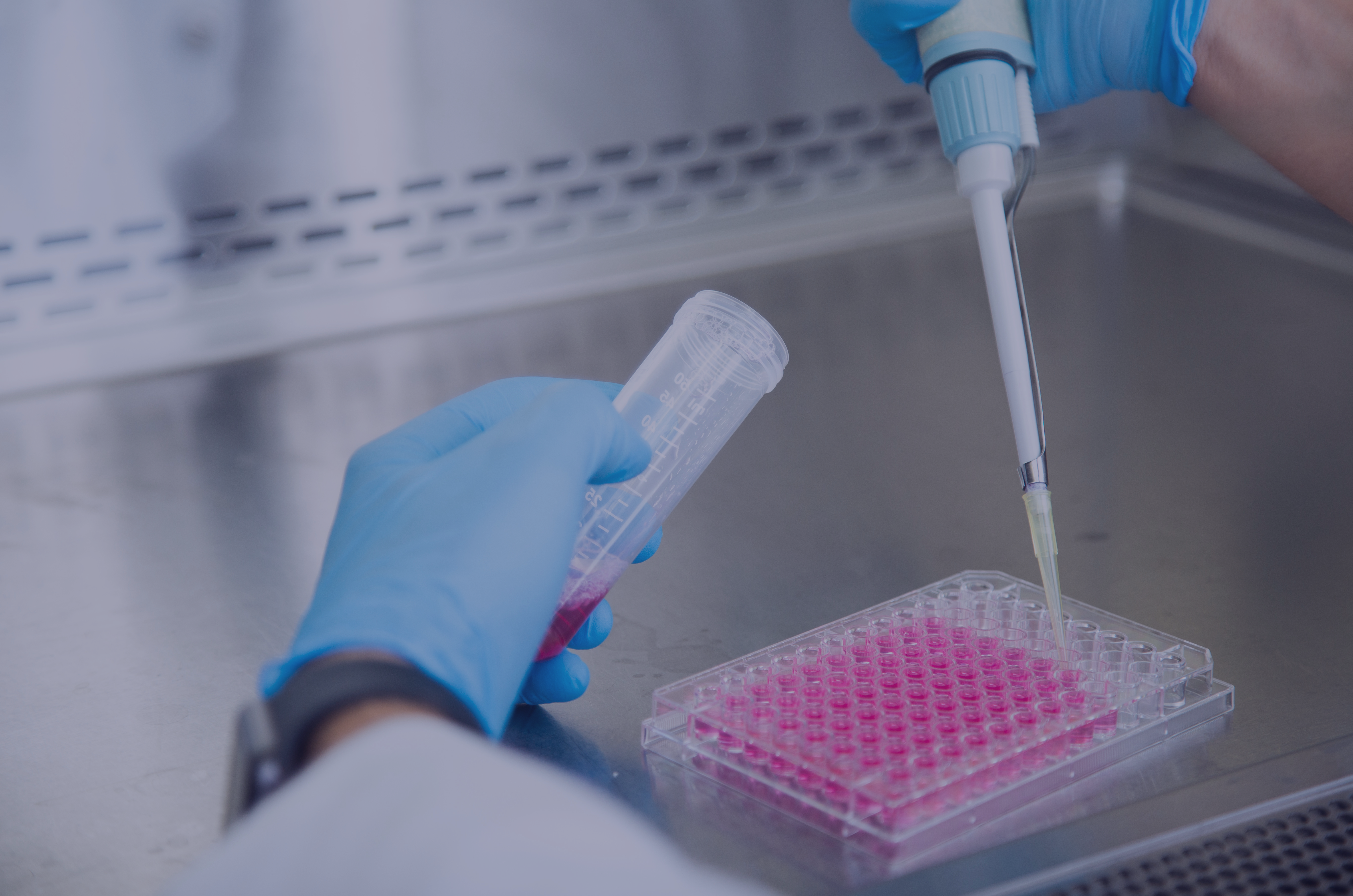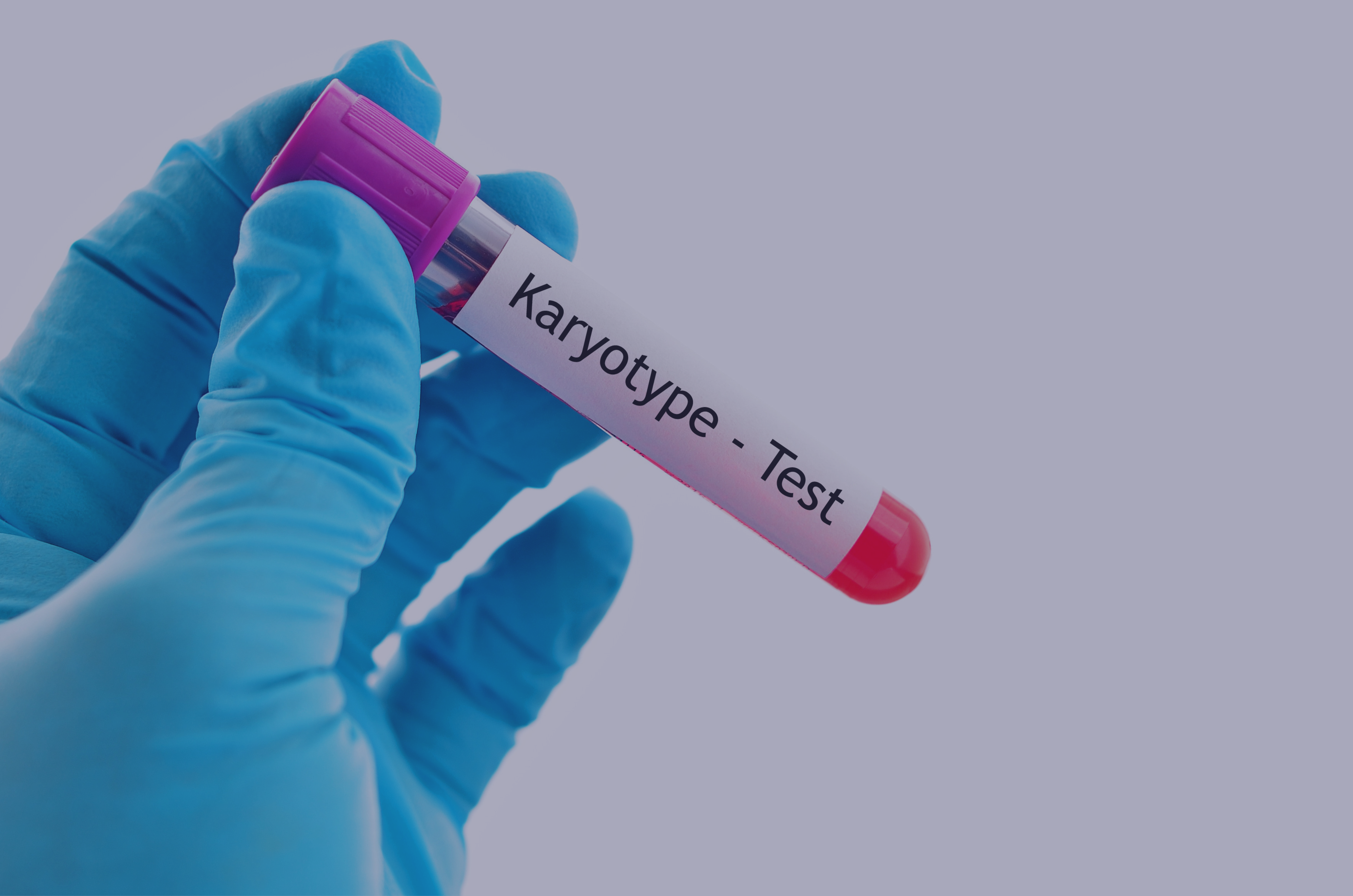Diagnosis of causes of miscarriages. Examination of miscarriage material. Study of the karyotype of the parents by clinical microarray (aCGH, molecular karyotype).


Diagnosis of causes of miscarriages

Have you had a miscarriage? Find out the cause of your pregnancy loss and increase your chances of keeping another pregnancy.
Statistically, about 15-20% of all clinically diagnosed pregnancies end in spontaneous miscarriage.
Inmost cases (60-80%) genetic defects of the embryo are behind the loss. At Gyncentrum clinic, we offer our patients a complete diagnosis of the causes of miscarriage, including:
- Genetic examination of the material from the miscarriage
- Examination of the parents’ karyotype using the clinical microarray method
Clarifying the direct cause of a miscarriage is very important for at least several reasons. First, by knowing what contributed to the loss of the pregnancy, parents can more quickly return to emotional equilibrium. Second, by being aware of the source of the problems with maintaining the pregnancy, they can take steps to increase their chances of maintaining another pregnancy.

Do you have questions about testing after a miscarriage?
Examination of material from a miscarriage
The most common causes of spontaneous miscarriage in early pregnancy are genetic factors, most of which are abnormalities in the number of chromosomes. The consequences of these defects are abnormalities in the development of the embryo, which usually leads to miscarriage. These defects usually arise already at the stage of fusion of the genetic material of the ovum and sperm, are most often accidental and occur with a completely normal karyotype of both partners.
Why is it important to test for genetic diseases of the fetus after a miscarriage?
- Genetic diseases are the most common cause of miscarriage, so it is worth ruling out fetal aneuploidies first.
- The test allows you to direct further diagnosis of miscarriage.
- The test allows you to estimate the risk of future miscarriages or the birth of a child with a genetic defect.
- Knowing the cause of the miscarriage, you can better prepare for the next pregnancy.
- It is easier to come to terms with the loss of a pregnancy when you know that it was not due to negligence and could not have been prevented.
- The result of the genetic test of the cause of miscarriage, performed at the Gyncenter Genetic Laboratory, can be consulted with a Gyncenter reproductive medicine doctor.

Parental karyotype testing
Statistically, up to 3 – 6% of parents are carriers of chromosomal aberrations. The presence of abnormalities in the structure or number of chromosomes is associated with a higher risk of pregnancy failure, including habitual miscarriage. Such a parent has no apparent symptoms. The only things that concern him are reproductive failures. The tool to identify them is the karyotype test, which evaluates the number and structure of chromosomes.
If one parent is a carrier of a chromosomal aberration, there is a likelihood that a miscarriage will also occur with the next pregnancy (these changes are hereditary). The risk of a repeat pregnancy loss can only be determined by a geneticist, based on the test results obtained. He can also suggest the couple to perform prenatal testing or preimplantation diagnosis (PGD), preceding IVF.

Clinical microarray (molecular karyotype)
Clinical microarray (molecular karyotype), using aCGH technology, or comparative genomic hybridization to microarray, offers much greater capabilities than classical karyotype testing. In addition to aneuploidies in chromosomes, it can identify much finer changes, so-called submicroscopic chromosomal aberrations. Using classical cytogenetics (classical karyotype examination) we are not able to track them, due to the limited resolution.
Molecular karyotype allows us to determine the possible cause of pregnancy loss, fetal death or stillbirth. To do this, it uses special molecular probes that attach to selected sites in the DNA. A special device records and analyzes the signal from the probes, and only on the basis of this analysis is the patient’s karyotype and changes in the number of copies of variants determined. The microarray image created is bioinformatically analyzed and then transferred to a laboratory diagnostician for evaluation.
Call usThe following types of samples are obtained for analysis:
- peripheral blood – if the test is to check the parents’ carriage of genetic defects.
- Material from a miscarriage – if the test is to determine whether the cause of the miscarriage was a genetic defect in the embryo.
- aminocytes (fetal cells present in the amniotic fluid) – if the test is to confirm or exclude the presence of a genetic defect in the fetus.
What can cause miscarriages?
Statistically, about 15-20% of all clinically diagnosed pregnancies end in spontaneous miscarriage, of which about 80% of miscarriages occur by the 12th week of pregnancy. Miscarriage can be the result of abnormalities lying on the side of both the mother’s body and the embryo. Among the most common causes of pregnancy loss are:
Genetic defectsoccurring in the embryo or parents: in the case of the embryo, these are most often abnormalities in the number of chromosomes (chromosome aberrations) responsible for the occurrence of such genetic diseases as Down syndrome, Edwards syndrome, Patau syndrome, Turner syndrome and others. Their presence is most often random and does not recur in subsequent pregnancies. Abnormalities in the parents’ karyotypes are much less often behind miscarriages. However, when present, they can lead to subsequent miscarriages. Statistically, one partner out of 3-6% of couples experiencing habitual miscarriages is a carrier of a balanced structural chromosomal aberration (most often a Robertsonian translocation), which can make it impossible to maintain a pregnancy.
Defects in the structure of the uterus: such as bicornuate uterus, unicornuate uterus, septate uterus or cervical insufficiency.
Endocrine disorders: abnormal levels of sex hormones (deficiency, excess), thyroid disease and PCOS have a significant impact on the course of pregnancy.
Immunological disorders: such as antiphospholipid syndrome. In its course, antibodies are produced that attack the body of the pregnant woman.
Viral, bacterial and fungal infections: such as rubella, toxoplasma, cytomegalovirus, chlamydiosis.
Make an appointment for a consultationFrequently asked questions about
miscarriages
Miscarriage is most often manifested by paroxysmal lower abdominal pain of varying severity, radiating to the lumbosacral region, as well as spotting and bleeding from the genital tract. Rarer symptoms we can include: an increase in body temperature, chills, a feeling of restlessness, white-pinkish discharge from the genital tract, weight loss.
Miscarriages are divided based on various criteria, and each type is slightly different in nature. There are the following types of miscarriage:
- Spontaneous miscarriage: one that occurred without medical intervention.
- Early miscarriage: one that occurred before the 12th week of pregnancy.
- Late miscarriage: one that occurred after the 12th week of pregnancy.
- Single (sporadic) miscarriage: a miscarriage that occurred only once.
- Habitual/recurrent miscarriage: that of the third and each subsequent miscarriage.
- Complete miscarriage: one in which the fetal egg has been completely expelled from the mother’s body.
- Incomplete miscarriage: we refer to it when fragments of the placenta, chorionic villi remain in the uterus. Then they must be removed, for example, during a uterine curettage procedure.
- Retained miscarriage: this is the death of the fetal egg, followed by no expulsion of the dead fetus. Most often a woman finds out about it during an ultrasound.
- Ongoing miscarriage: a miscarriage that has already begun and is accompanied by severe abdominal pain and heavy bleeding from the genital tract. In this type of miscarriage, the pregnancy can no longer be saved.
YES! A single miscarriage does not exclude the possibility of getting pregnant again and giving birth to a healthy baby. Helpful in achieving this goal, is to know the cause of the miscarriage. Therefore, when a pregnancy loss occurs, it is worth undergoing appropriate diagnostics.
Theoretically, it is possible already during the first ovulation after the loss, that is, around 2-8 weeks after the miscarriage. However, doctors recommend that you give your body time to recover and start trying no earlier than 3-6 months after the miscarriage.
Do you have questions about testing after a miscarriage?
Schedule a consultation with our specialist!
Thank you for filling out the form
We will contact you shortly to schedule a convenient appointment.

